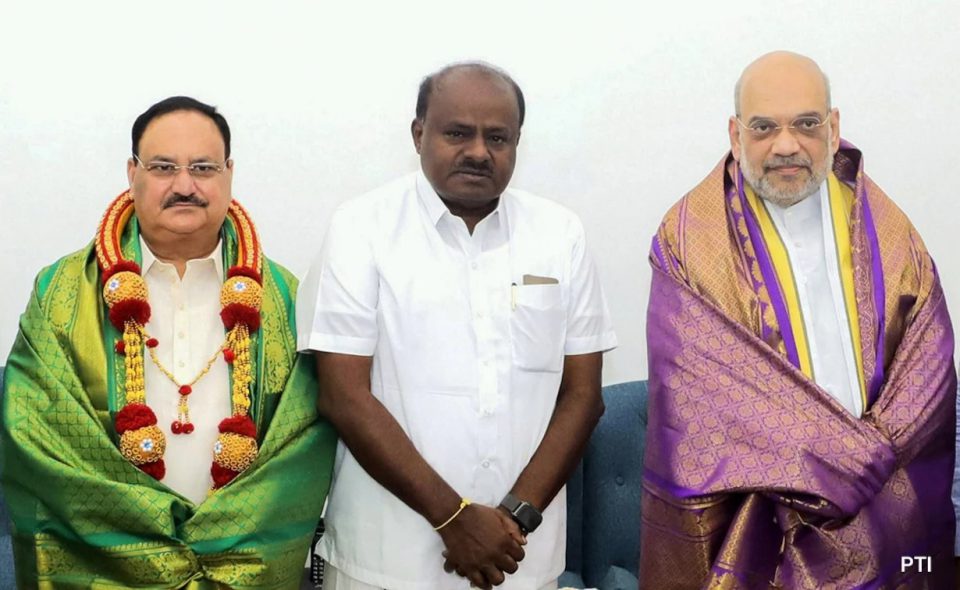An analysis conducted by National Election Watch (NEW) and the Association for Democratic Reforms (ADR) has revealed that three ministers from South India have the highest liabilities among the newly appointed ministers in the Central government. Dr. Chandra Sekhar Pemmasani, an MP from Guntur, Andhra Pradesh, tops the list with liabilities exceeding Rs 1038 crore. Following him are Karnataka’s HD Kumaraswamy (Mandya) and V Sommana (Tumkur), with liabilities of over Rs 82 crore and Rs 22 crore, respectively.
Interestingly, Dr. Pemmasani and Kumaraswamy also rank among the top three MPs with the highest assets. Dr. Pemmasani leads with assets worth more than Rs 5705 crore, while Kumaraswamy comes in third with approximately Rs 217 crore. This significant financial status highlights the substantial economic stakes of these ministers.
The analysis also sheds light on the criminal charges faced by some of the ministers. Out of the 71 ministers, 19 are battling serious criminal charges. Bandi Sanjay Kumar from Telangana has the highest number of serious charges, including crimes against women. Suresh Gopi, BJP’s sole MP from Kerala, ranks fifth in terms of serious charges faced.
Regarding educational qualifications, the new council of ministers presents a diverse academic background. Eleven ministers have declared their highest educational qualification as 12th standard. In contrast, 57 ministers have reported having a graduate-level education or higher. Among these, 14 hold a basic university degree, while 10 possess professional graduate degrees in specialized fields such as law, engineering, or medicine. Furthermore, 26 ministers have post-graduate degrees, and seven boast doctorates, indicating a highly educated leadership.
The analysis by ADR highlights the varied profiles of the new ministers, encompassing financial liabilities, assets, criminal charges, and educational qualifications. This comprehensive overview provides a deeper understanding of the composition of the new Central government and raises important questions about the financial and legal backgrounds of those in power.
The significant financial liabilities and assets of certain ministers, particularly from South India, underscore the economic dimensions of political leadership in the country. Simultaneously, the presence of serious criminal charges against some ministers calls for closer scrutiny and accountability.
As the new government takes charge, these findings emphasize the need for transparency and integrity in political office. The educational qualifications of the ministers also reflect a broad spectrum of expertise, which could be instrumental in addressing the diverse challenges facing the nation.
In conclusion, the ADR’s analysis offers valuable insights into the newly appointed ministers, highlighting key aspects of their financial, legal, and educational backgrounds. This information is crucial for the public and policymakers alike, as it informs the discourse on governance and accountability in India’s political landscape.

